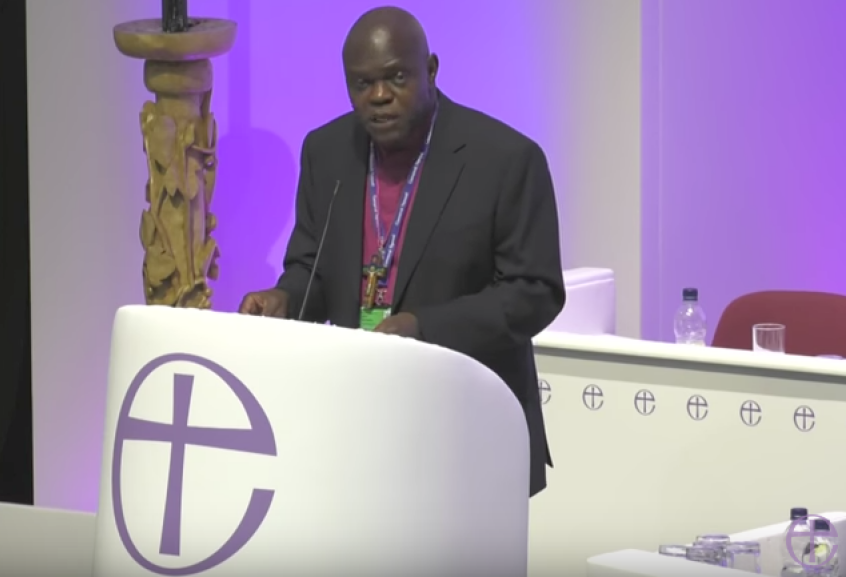
A second referendum on Brexit will undermine Britain's democracy and threaten civil unrest, the Archbishop of York has warned.
Writing in the Yorkshire Post, Dr John Sentamu also said he was supportive of Theresa May's Brexit deal that will be voted on in Parliament in a week's time.
May is opening five days of debate on the deal in the House of Commons today before MPs cast their votes next Tuesday evening.
The Archbishop said he had been through the deal 'with a fine-tooth comb' and would be 'content' to see it passed.
While there have been calls for a second vote on Brexit, Dr Sentamu said that such an event would only lead to a potentially dangerous loss of trust in Britain's political institutions.
'Our first concern must be maintaining respect for democratic law-making institutions, which are under heavier pressure today than for more than a century,' he said.
'Rerunning referenda, whatever proximate political goods may be in view, subverts agreed decision-making procedures after the event, and that undermines trust.
'The further draining away of trust from an already discredited political class would be of very great danger to the future government of Britain.
'Permanent loss of confidence in governmental institutions always results in civil unrest and violence.'
He added that while a second referendum could overturn the Government's position, there was no better alternative on the table.
He went on to chide politicians who had suggested Britain could secure the perfect withdrawal from the EU, saying that any deal with Brussels would require compromise.
'Any satisfactory Brexit deal was necessarily a compromise. The idea of a "pure" or "maximal" Brexit, which would somehow make a clean sweep and give us a completely blank page to write on, was a childish dream, and no serious politician should have entertained it,' he wrote.
'The work of politics is to find workable and just compromises. There are no blank pages in politics; there are only good relationships, strengthened by past co-operation, and bad relationships soured by disappointments and betrayals.'













